Are you looking for an effective way to communicate academic performance evaluations? Crafting a well-structured letter can make all the difference in conveying your insights and fostering improvements. Whether you're addressing parents, students, or academic committees, it's essential to present information clearly and supportively. Dive into this article to discover comprehensive letter templates that will help you articulate evaluations with confidence!
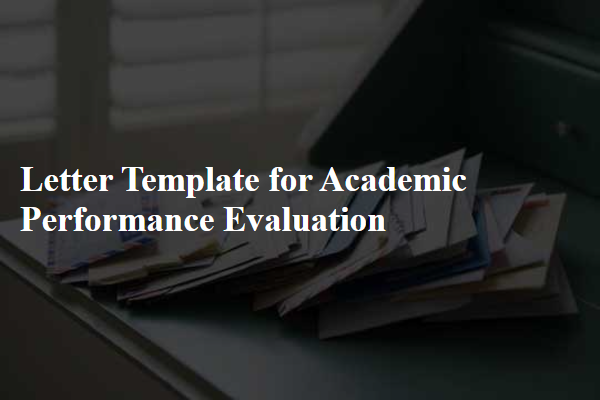
Introduction and Purpose
The academic performance evaluation serves as a critical tool to assess student progress and effectiveness in educational settings, particularly in institutions such as universities or high schools. This systematic analysis aids educators in understanding how well students are meeting curriculum standards and personal growth goals. Comprehensive evaluations can identify strengths, weaknesses, and potential areas for improvement in various subjects, including mathematics, science, and language arts. Furthermore, this evaluation provides valuable feedback for students, enabling them to develop effective study strategies and improve their understanding of complex concepts. The ultimate aim remains to enhance the overall learning experience and foster academic excellence.
Student's Performance Summary
Student's academic performance is assessed through various metrics, including grade point averages (GPA), standardized test scores, and participation in extracurricular activities. During the 2022-2023 academic year, the student achieved a GPA of 3.8 on a 4.0 scale, demonstrating strong performance across core subjects such as Mathematics, Science, and English Language Arts. Participation in the statewide Math Olympiad, where the student ranked in the top 10% among 500 competitors from over 30 schools, illustrates exceptional analytical skills. Additionally, involvement in the school's debate team led to recognition at the National Debate Championship, contributing to both public speaking proficiency and critical thinking abilities. Regular attendance at seminars and workshops at the Community Learning Center further showcases the student's commitment to self-improvement and academic excellence.
Specific Achievements and Contributions
Specific achievements in academic performance can include mastering complex subjects such as calculus and physics, demonstrated by consistently scoring above 90% in examinations. Contributions to group projects showcase leadership abilities, where organizing study sessions for peers resulted in improved overall grades for the team. Participation in extracurricular activities, such as science fairs or debate clubs, highlights public speaking skills and innovative thinking. Awards like "Student of the Month" or scholarships from local educational foundations often indicate high levels of dedication and motivation. Involvement in community service projects can reflect a well-rounded individual, fostering interpersonal skills and teamwork.
Areas for Improvement and Recommendations
Student performance evaluations often highlight areas needing enhancement for overall academic growth. Common areas for improvement include time management, which affects assignments' timely submissions and project completion; study habits requiring refinement, as structured study sessions lead to better retention; participation in class discussions vital for deeper understanding; and critical thinking skills essential for analyzing complex materials. Recommendations for improvement include utilizing planners for time management, engaging with study groups for collaborative learning, seeking additional resources like tutoring centers at educational institutions, and regular meetings with academic advisors for personalized guidance. Implementing these strategies can significantly elevate a student's academic performance and confidence.
Conclusion and Future Expectations
A well-rounded academic performance evaluation highlights a student's achievements, strengths, and areas for improvement. The conclusion should summarize key insights from the assessment, focusing on overall grades, participation in class discussions, and mastery of subject matter, such as Mathematics scores averaging 85% or English literacy skills demonstrated through written assignments. Future expectations should outline specific goals, such as improving GPA by 0.5 points in the next semester or engaging in extracurricular activities like debate club or science fairs to enhance critical thinking and public speaking skills. Encouragement to attend tutoring sessions or join study groups can underscore a commitment to personal growth and academic success moving forward.

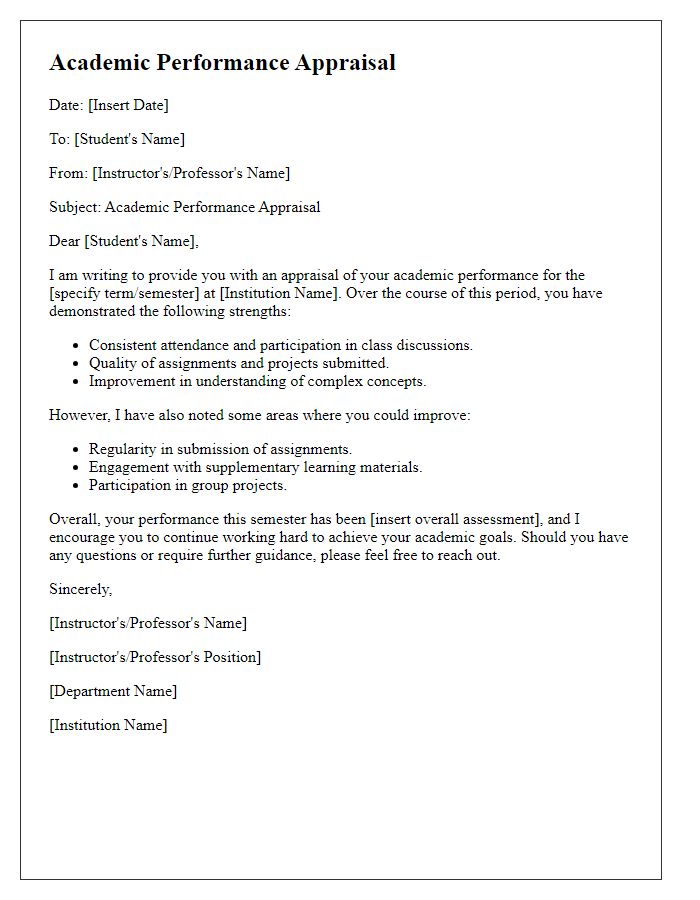
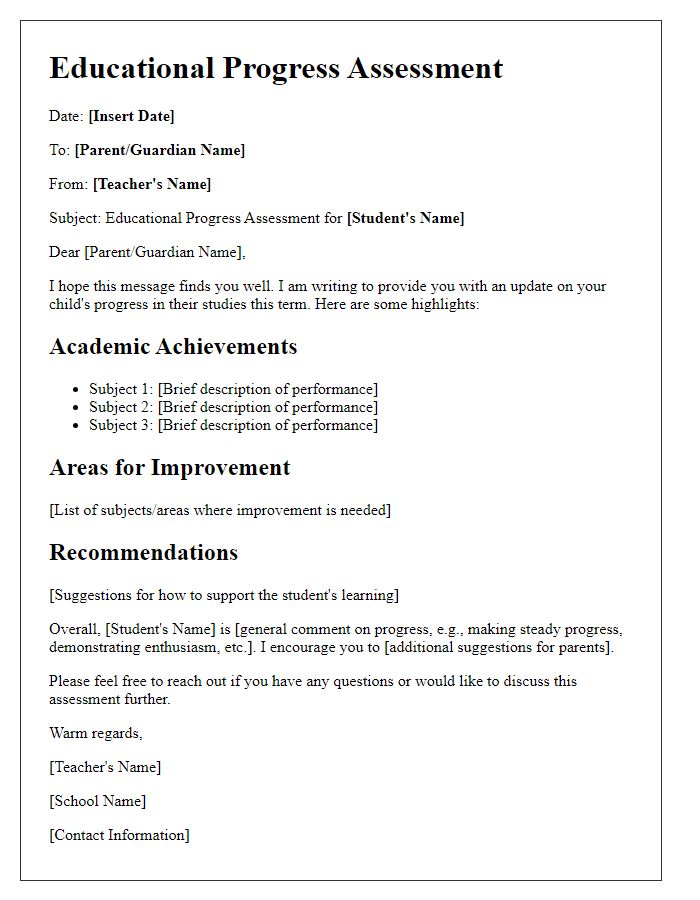
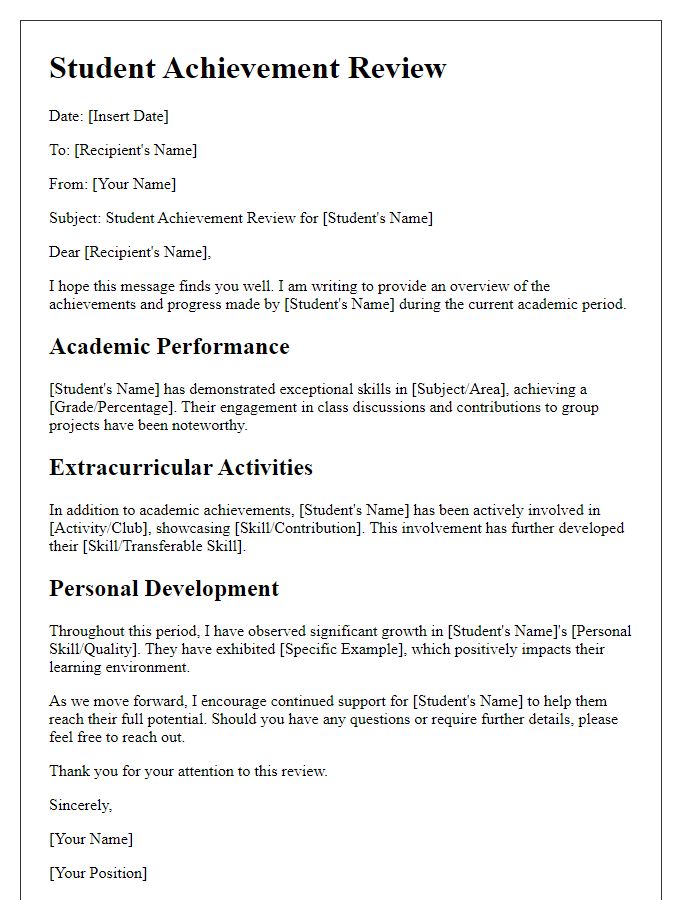
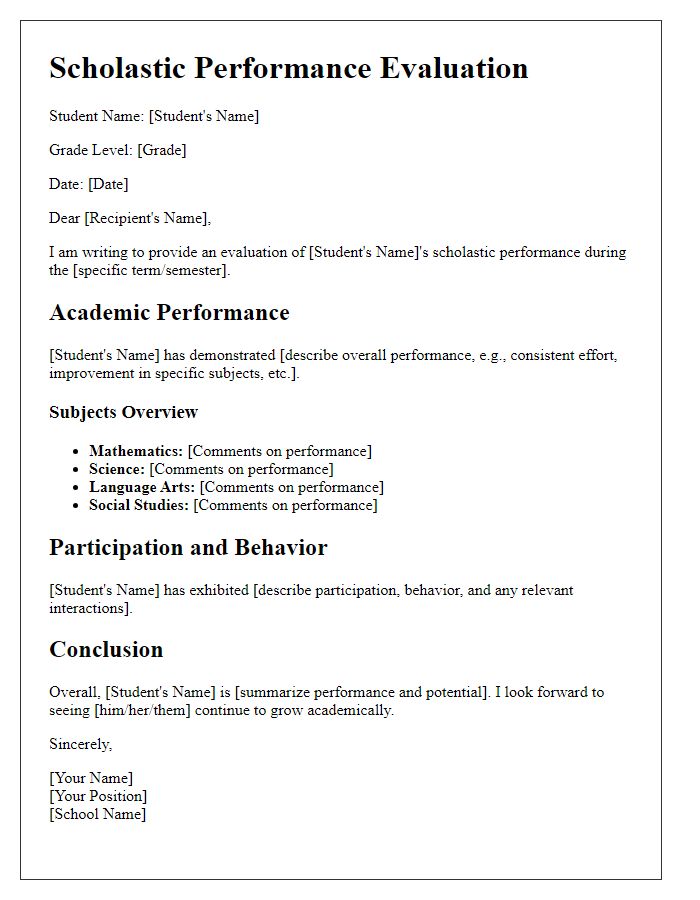
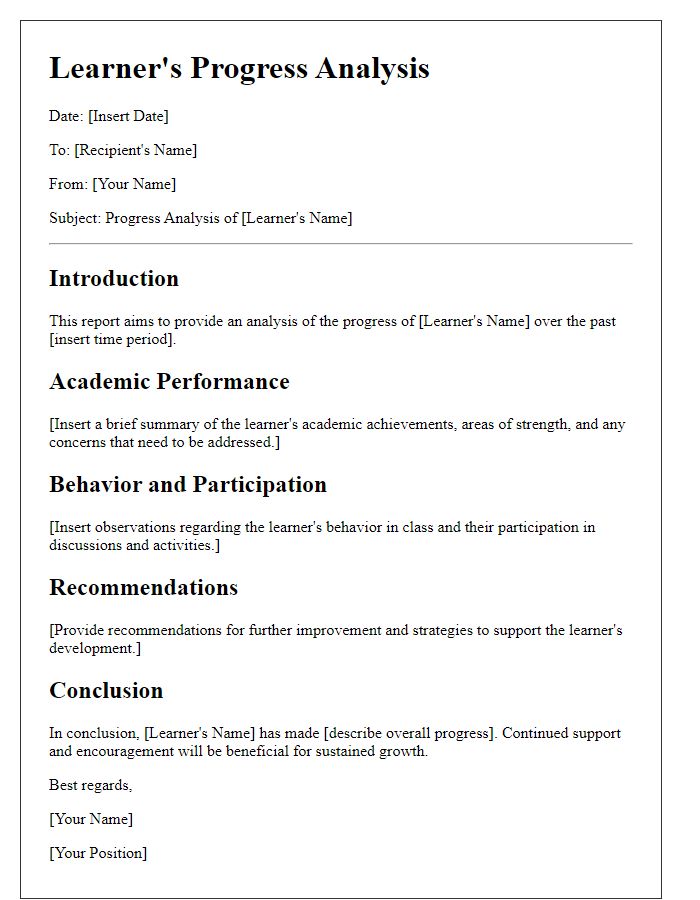
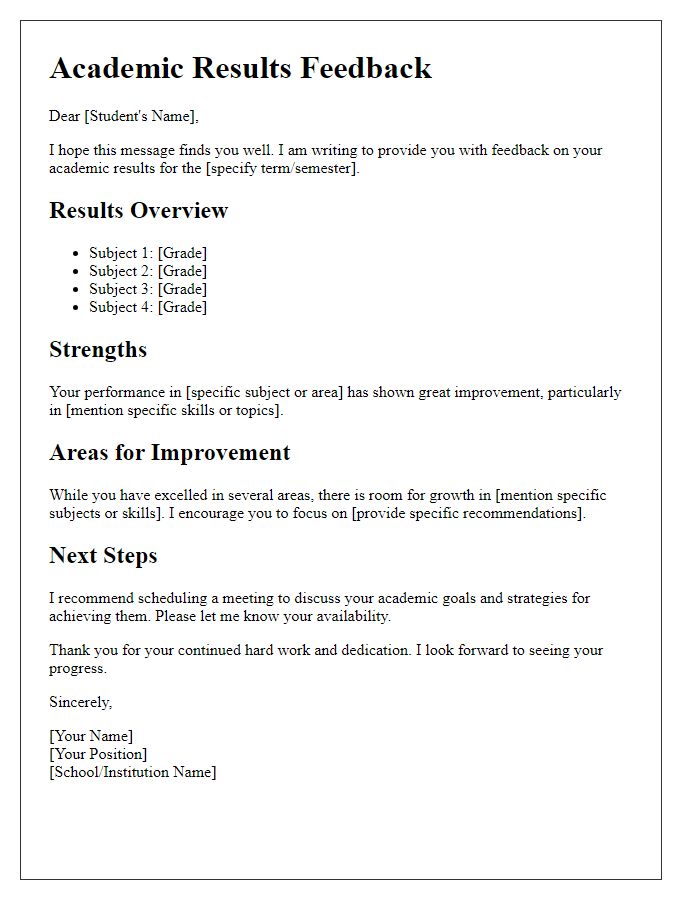
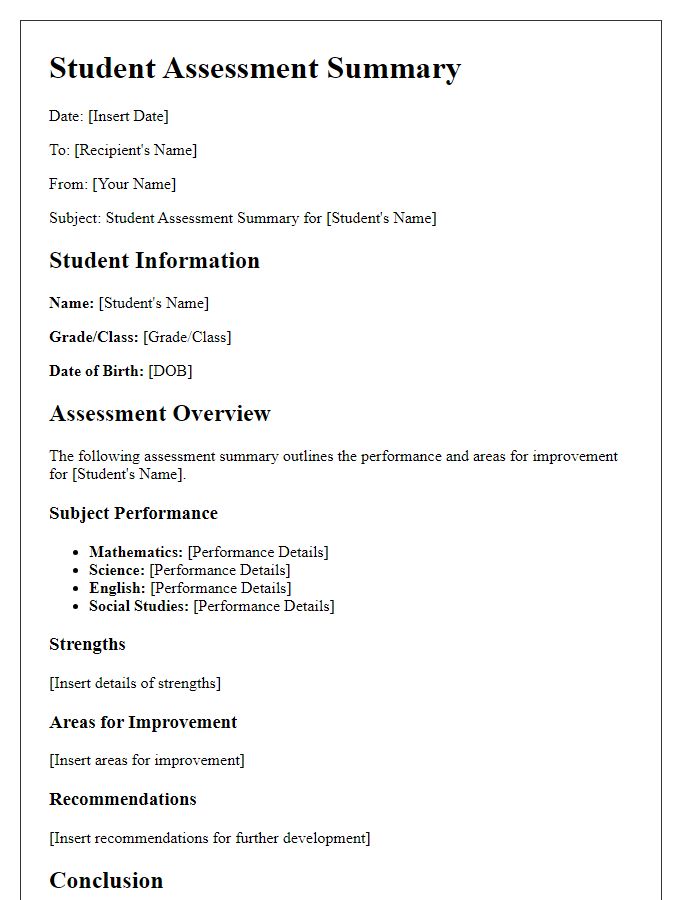
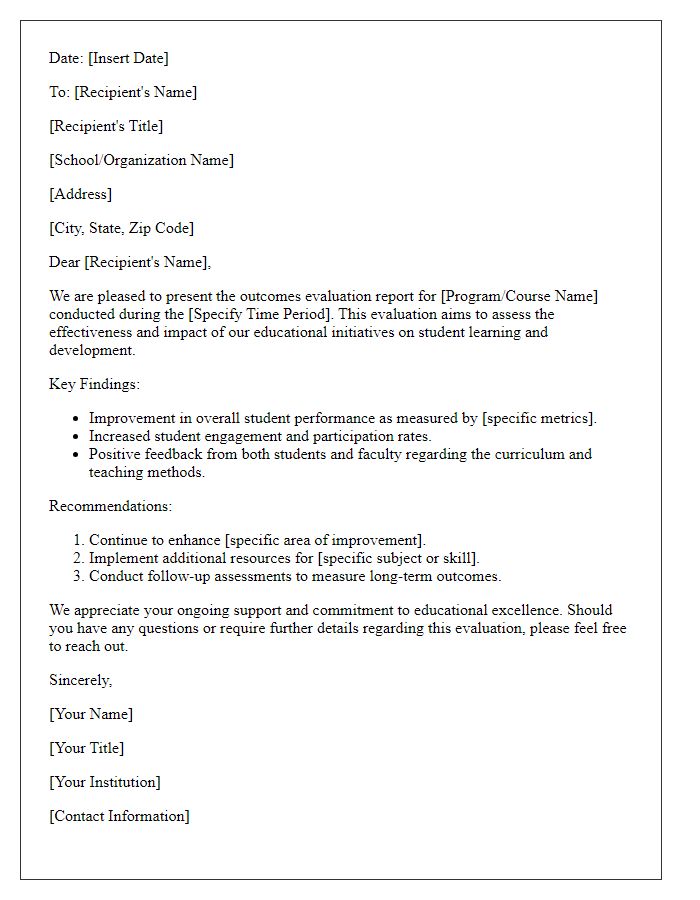
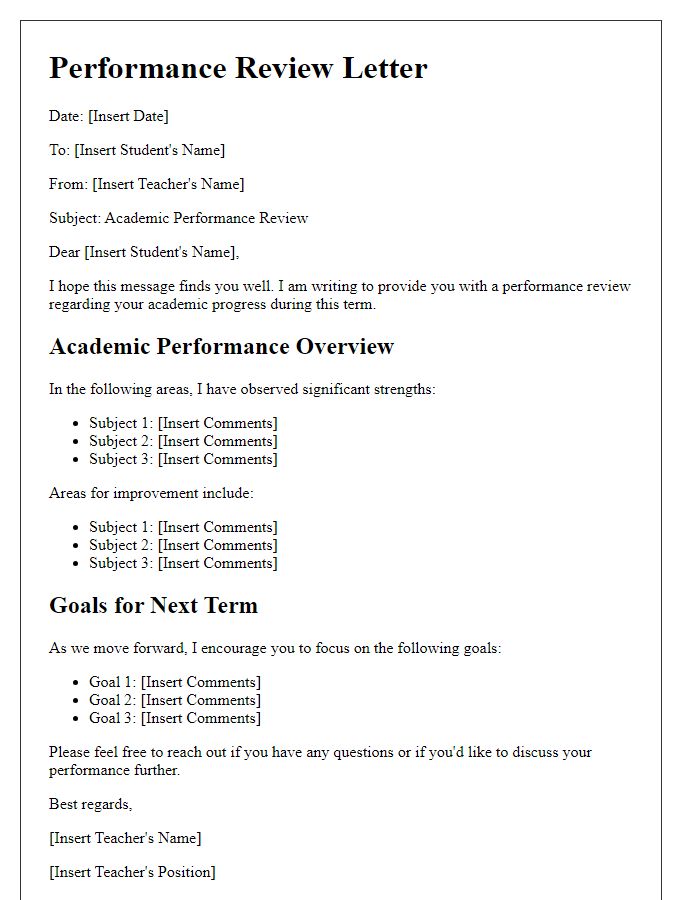
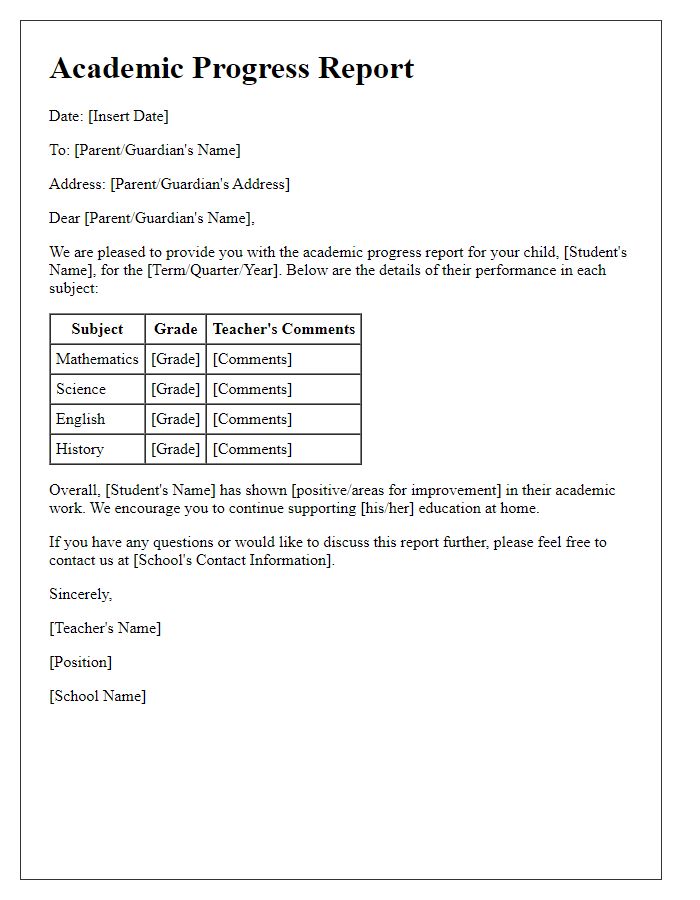


Comments